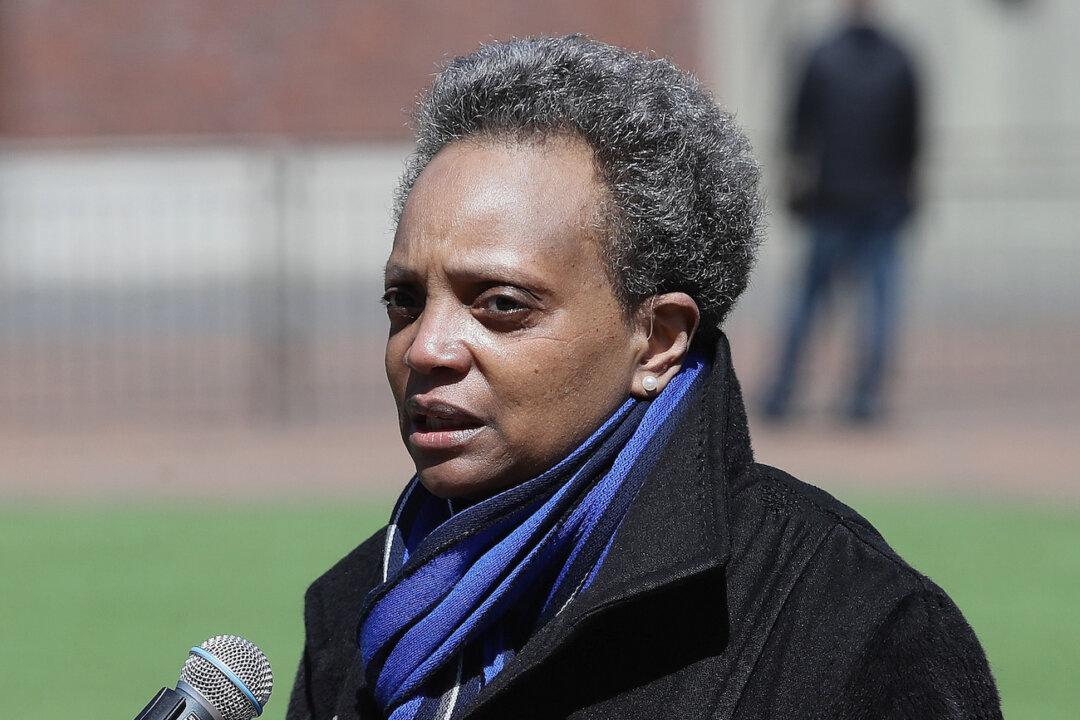CHICAGO—Chicago Mayor Lori Lightfoot on Monday unveiled her version of a civilian police oversight plan that allows her to retain the key powers of picking the police chief, negotiating contracts with police unions, and deciding on police policy disputes.
For about four years, mayors in Chicago have been pressured by activist groups to give key policing powers to elected civilians. Lightfoot herself was once such an advocate, having chaired the Police Accountability Task Force under former Mayor Rahm Emanuel.





